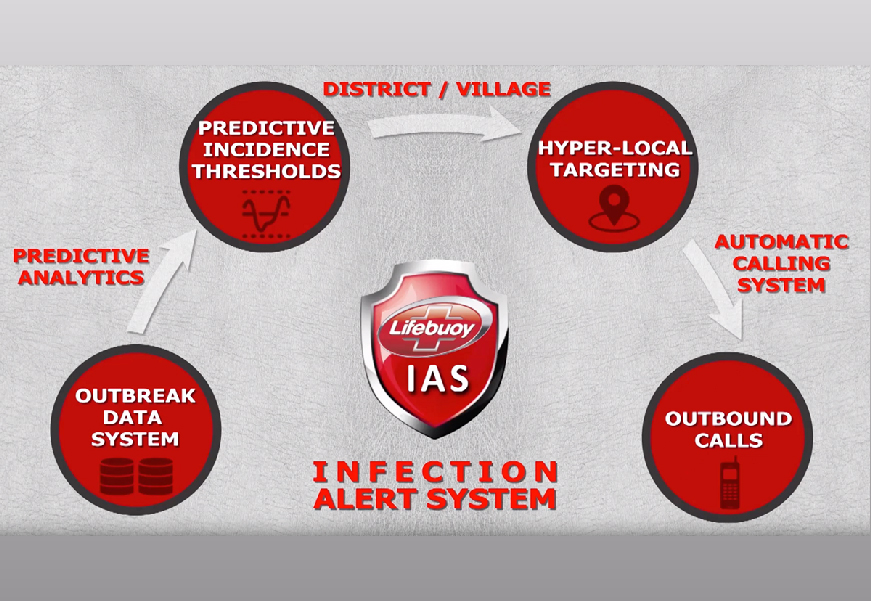
India’s Infant Mortality Rate is 13% higher than the global average. Half of these deaths are caused by preventable diseases like diarrhea and pneumonia and occur in rural areas.
Indians primarily eat and feed their children with their hands, not cutlery. Hand-washing with soap is the single most cost-effective intervention to prevent child deaths.
Lifebuoy, India’s no. 1 soap brand wanted to reach these people to change hand washing behaviour and reduce the incidence of illness and death. The brief was to overcome media barriers characteristic of rural India (i.e. low television penetration, low literacy rates rendering print and out of home ineffective and negligible internet penetration) to reach people when they were most vulnerable.
Lifebuoy wanted to drive hand-hygiene behaviour change to reduce the incidence of illness and child deaths in rural India. Our data-led Infection Alert System proactively alerted consumers via mobile when they were most vulnerable to fatal diseases.
Our solution was to create a data-led infection alert system to help Lifebuoy proactively educate consumers when they are most vulnerable to fatal diseases – and activate it through mobile which has the highest reach in rural areas.
Fuelled with Government of India data collected from 34,000 rural community health centres across 822 villages and sub-districts, the proprietary algorithm simplified big data to help understand the Intensity, Magnitude and Trends of each of 21 communicable diseases, at a weekly level, for each of the 822 districts.
Modeling historical data on these diseases we derived a Predictive Incidence Rate. When an outbreak was predicted, we activated an automatic calling system that made on average 8 million calls every week, alerting rural consumers contextually on the prevalent disease in their village and educating them on the importance of hand washing with soap as a preventive measure.
The Infection Alert System not only helped drive Lifebuoy’s brand purpose but also brought in promising results for the brand in terms of salience and penetration gain in rural states.
The Infection Alert System has now been extended to 6 additional states and it has become a permanent platform for HUL for regular engagement with the target segments.